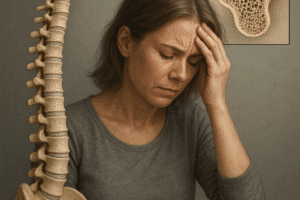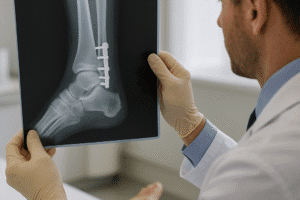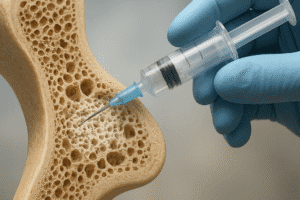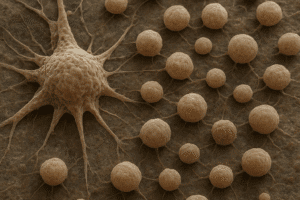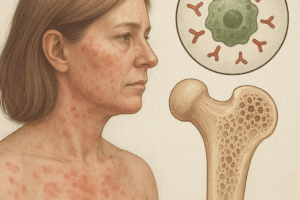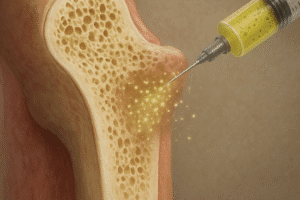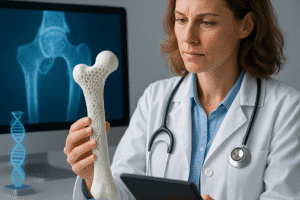The role of hormones in bone growth and maintenance is a complex and fascinating subject that intertwines various biological processes. Hormones are chemical messengers that play a crucial role in regulating numerous physiological functions, including the development and maintenance of the skeletal system. Understanding how these hormones interact with bone cells and influence bone density, growth, and repair is essential for comprehending various bone-related disorders and conditions.
Understanding Bone Growth
Bone growth is a dynamic process that occurs throughout an individual’s life, with significant changes during childhood, adolescence, and early adulthood. The primary types of cells involved in bone growth are osteoblasts, osteoclasts, and osteocytes. Osteoblasts are responsible for bone formation, while osteoclasts are involved in bone resorption. Osteocytes, which are mature bone cells, play a critical role in maintaining bone tissue and regulating the activity of osteoblasts and osteoclasts.
During childhood and adolescence, the skeleton undergoes rapid growth, primarily influenced by genetic factors and hormonal changes. The growth plates, or epiphyseal plates, located at the ends of long bones, are areas where new bone is formed. Hormones such as growth hormone (GH), sex hormones (estrogen and testosterone), and thyroid hormones significantly impact the activity of osteoblasts and the overall growth of bones.
The Influence of Growth Hormone
Growth hormone, produced by the pituitary gland, is one of the most critical hormones for bone growth. It stimulates the liver and other tissues to produce insulin-like growth factor 1 (IGF-1), which promotes the proliferation and differentiation of osteoblasts. Increased levels of GH during childhood lead to enhanced bone formation and growth, contributing to the overall increase in height and bone mass.
Deficiencies in growth hormone can lead to stunted growth and reduced bone density, while excess GH can result in conditions such as acromegaly, characterized by abnormal bone growth and enlargement of the extremities. Therefore, maintaining a balanced level of growth hormone is essential for optimal bone health.
The Role of Sex Hormones
Sex hormones, particularly estrogen and testosterone, play a vital role in bone growth and maintenance. During puberty, the surge in sex hormones leads to a significant increase in bone mass and density. Estrogen, in particular, is crucial for the closure of growth plates, marking the end of longitudinal bone growth. It also helps maintain bone density by inhibiting osteoclast activity, thus reducing bone resorption.
In women, the decline in estrogen levels during menopause is associated with an increased risk of osteoporosis, a condition characterized by weakened bones and an increased risk of fractures. Testosterone also contributes to bone health in men by promoting bone formation and inhibiting bone resorption. Low testosterone levels can lead to decreased bone density and an increased risk of fractures in older men.
Hormonal Regulation of Bone Maintenance
Bone maintenance is a continuous process that involves the remodeling of bone tissue. This process is regulated by various hormones that ensure a balance between bone formation and resorption. Key hormones involved in this regulation include parathyroid hormone (PTH), calcitonin, and vitamin D.
Parathyroid Hormone and Bone Remodeling
Parathyroid hormone is secreted by the parathyroid glands and plays a crucial role in regulating calcium levels in the blood. When calcium levels drop, PTH is released, stimulating osteoclast activity to increase bone resorption and release calcium into the bloodstream. This process is essential for maintaining calcium homeostasis, but excessive PTH secretion can lead to bone loss and increased fracture risk.
In addition to stimulating osteoclasts, PTH also promotes the formation of new bone by stimulating osteoblast activity. This dual action makes PTH a critical hormone in bone remodeling, as it helps maintain the balance between bone resorption and formation.
Calcitonin and Its Protective Role
Calcitonin, produced by the thyroid gland, has an opposing effect to PTH. It is released when calcium levels in the blood are high and works to lower these levels by inhibiting osteoclast activity. By reducing bone resorption, calcitonin helps protect against excessive bone loss and maintains bone density. While its role in humans is less pronounced than in other species, calcitonin can still be beneficial in certain clinical situations, such as treating osteoporosis.
The Importance of Vitamin D
Vitamin D is another crucial hormone for bone health, primarily because it facilitates the absorption of calcium and phosphorus from the intestines. Adequate levels of vitamin D are essential for maintaining bone density and preventing conditions such as rickets in children and osteomalacia in adults. Vitamin D also plays a role in regulating the activity of osteoblasts and osteoclasts, further contributing to the balance of bone remodeling.
Deficiency in vitamin D can lead to weakened bones and an increased risk of fractures. Therefore, ensuring sufficient vitamin D levels through sunlight exposure, diet, or supplementation is vital for maintaining healthy bones throughout life.
Conclusion
The intricate interplay of hormones in bone growth and maintenance highlights the importance of these chemical messengers in skeletal health. From the stimulating effects of growth hormone and sex hormones during growth spurts to the regulatory roles of parathyroid hormone, calcitonin, and vitamin D in adulthood, hormones are essential for maintaining bone density and preventing disorders such as osteoporosis.
Understanding the hormonal influences on bone health can lead to better prevention and treatment strategies for bone-related conditions. As research continues to uncover the complexities of hormonal regulation in bone biology, it becomes increasingly clear that maintaining hormonal balance is crucial for lifelong skeletal health.
